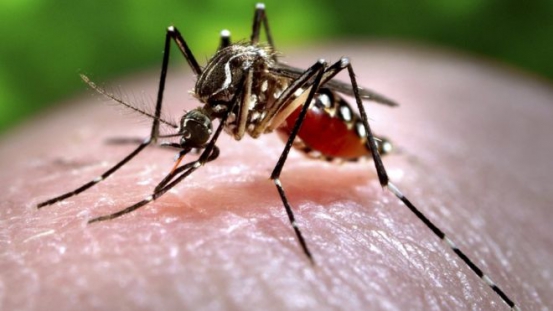
Kenya has missed its 2017 malaria elimination target with experts warning that mosquitoes have upped their tricks of survival.
For example, around Valentine’s period, malaria experts meeting in Nairobi were discussing how mosquitoes at the Coast might have turned the lovers’ week into a feeding orgy.
Denied of a human blood meal by extensive use of toxic bed nets at the Coast, researchers say mosquitoes have learnt to hunt their prey down to the most unexpected moments.
One such trick to catch young romantics, explained Dr Lydiah Kibe of Kemri-Wellcome Trust, Kilifi, is to waylay young men as they go out hunting for their Valentines early in the night.
Today’s mosquito, the researchers said, is no longer waiting indoors for humans to retire in bed but has developed complicated outdoor hunting and feeding skills.
This he said to have complicated malaria eradication previously planned for 2017 but now moved to an unspecified date in the future.
During the Kenya Medical Research Institute’s (Kemri) annual scientific conference held in Nairobi a week ago, malaria experts told of unprecedented wins against the disease.
But behind closed doors, it was mainly long faces as many, for the first time, contemplated the possibility of losing the fight to the pesky insect.
Some of the challenges include seemingly simple tricks like mosquitos waylaying unprotected boda boda riders and palm wine tapers at the Coast.
Peter Githeko, also of Kemri, told of how the insect is rendering tens of thousands of pyrethrum farmers into redundancy.
At the peak of pyrethrum farming in Kenya it is estimated there were about 300,000 farmers making it the sixth highest foreign earner in the country.
Several studies have since established that the insect is no longer sensitive to pyrethrum derived insecticides used in treating nets or in indoor spraying.
This resulted to a shift to the dreaded DDT for indoor spraying in western region which has since become ineffective and an environmental disaster.
Plans are now underway to introduce the chemical Marathion with assistance from the US President’s Malaria Initiative.
But the wanton, but largely ineffective use of chemicals in fighting malaria is being questioned at Kemri due to unintended negative consequences on the environmental and human health.
A team led by Dr Elizabeth Mumbi Kigondu of Kemri is currently analysing the levels of pyrethrins in soils and drinking water around pyrethrum farms in Kiambogo and Naivasha in Nakuru County Endarasha in Nyeri County.
“We hope to tell whether the levels of pyrethrins present in those samples are safe for the environment, more so for farmers and the people living around pyrethrum farms,” Dr Kigondu had told the conference.
Back to Malindi and Magarini sub-counties at the Coast, Dr Kibe’s team told how mosquitoes have learnt to trap different genders and ages at varied times and activities.
Young men are most vulnerable early in the morning and at dusk as they operate boda bodas or at night while playing cards, pool table and at video dens and later on while hunting for girls.
Dr Kibe of the Centre for Geographic Medicine Research, Kilifi, told of mosquitoes waylaying younger women early in the morning and late in the evening when on routine household chores and farming near River Sabaki and other swampy areas.
Her team was presenting their findings from a recent community study in four villages in Malindi and Magarini sub-counties of the Coast.
They were investigating why there are still pockets of malaria transmission in the area despite massive decline of the disease and huge distribution of treated nets.
The insects have learnt to catch older men at the region at their popular game of ‘ajua’ enjoying or tapping palm wine in the evenings.
Because of a huge decline of malaria at the Coast in recent decades, the researchers warned local communities are no longer taking preventive measures seriously.
But the biggest problem may be in western Kenya where malaria infection rates and deaths remain high.
Even with the saturation of the Western region with nets and indoor spraying, malaria infections never went down as expected.
Because of the new found insecticide-resistant status, the researchers said mosquitoes have shifted to feeding on sleeping humans at the quieter hours of 3-5am.
www.rocketscience.co.ke
 The Standard Group Plc is a multi-media organization with investments in media
platforms spanning newspaper print
operations, television, radio broadcasting, digital and online services. The
Standard Group is recognized as a
leading multi-media house in Kenya with a key influence in matters of national and
international interest.
The Standard Group Plc is a multi-media organization with investments in media
platforms spanning newspaper print
operations, television, radio broadcasting, digital and online services. The
Standard Group is recognized as a
leading multi-media house in Kenya with a key influence in matters of national and
international interest.









